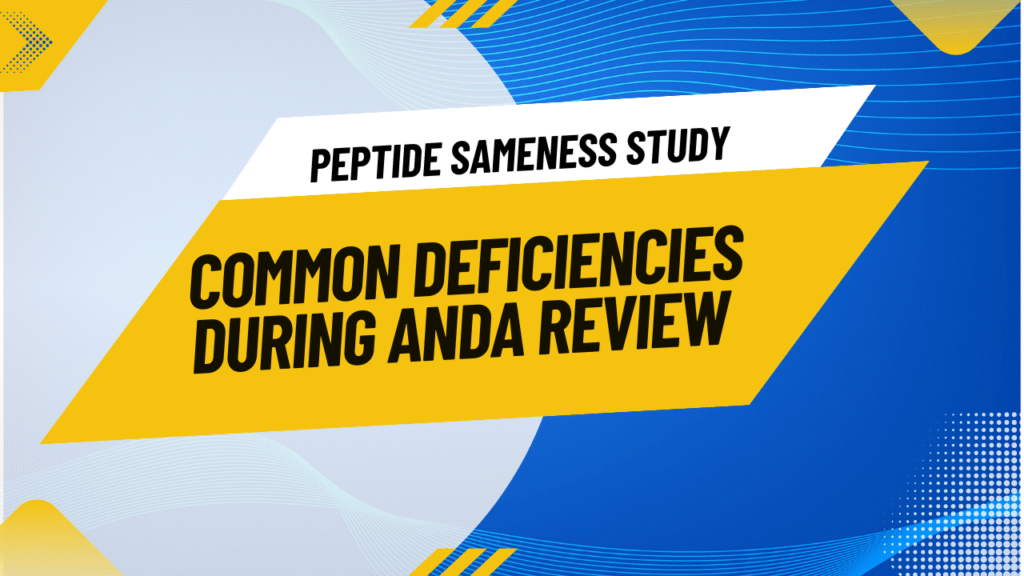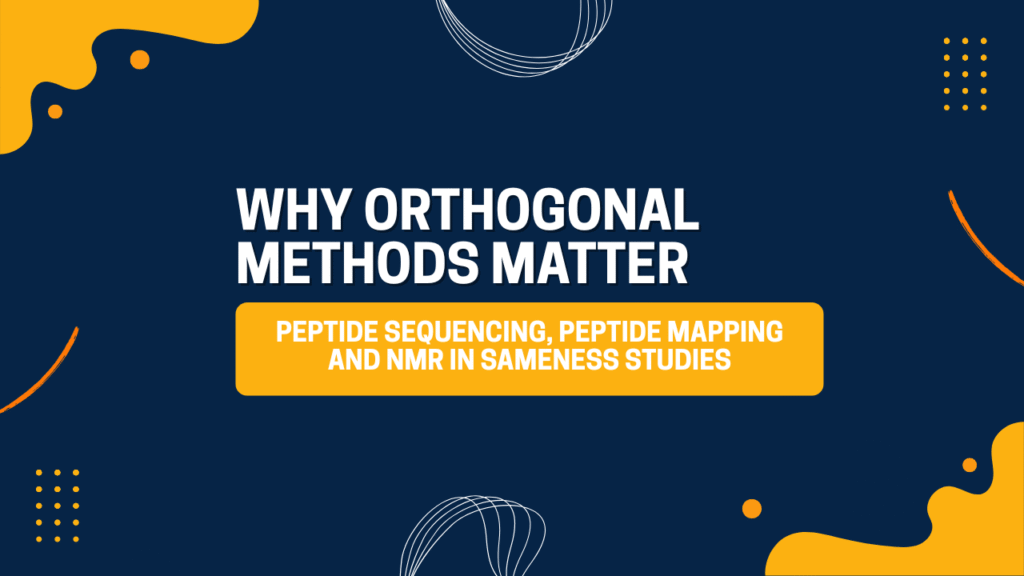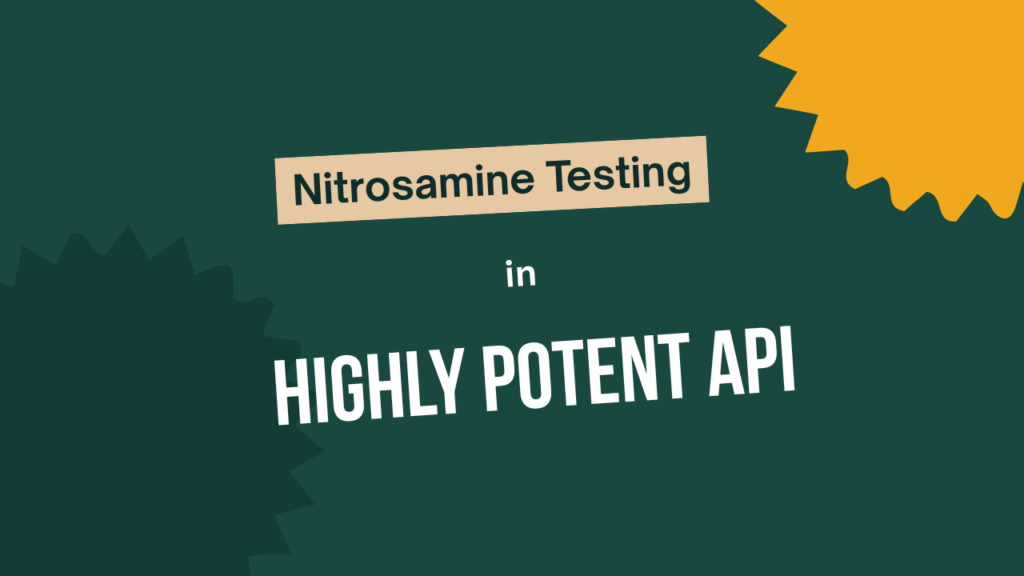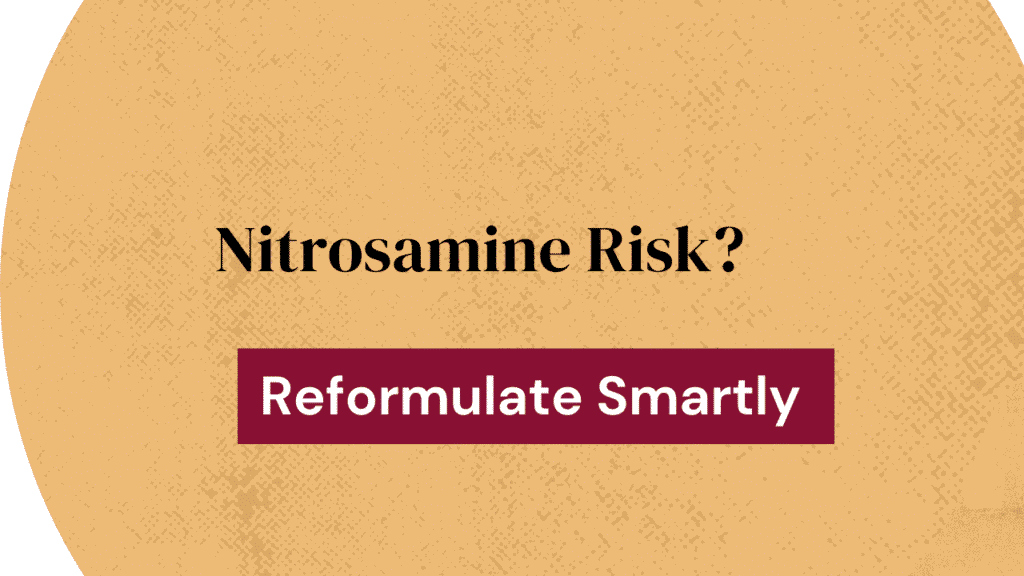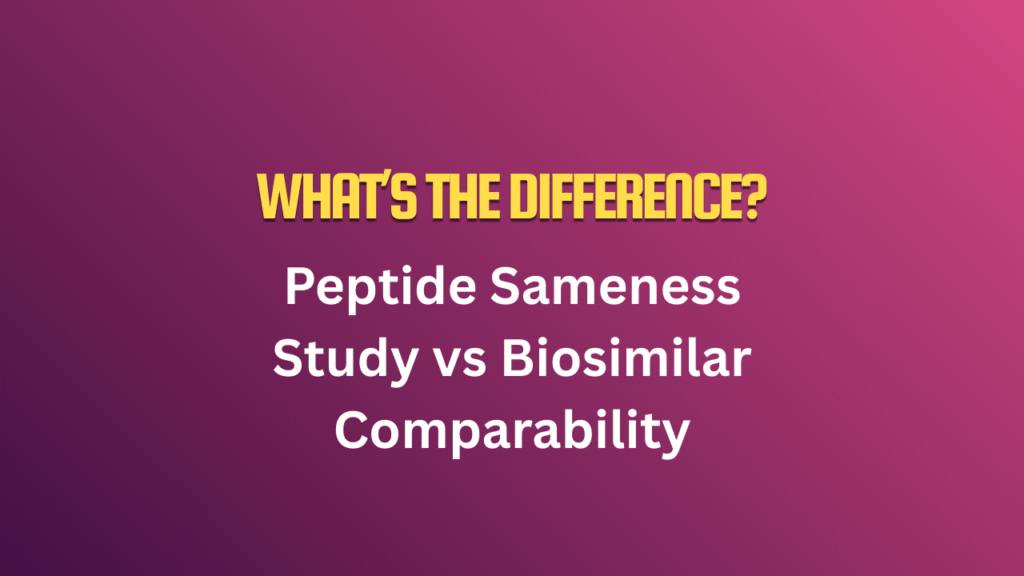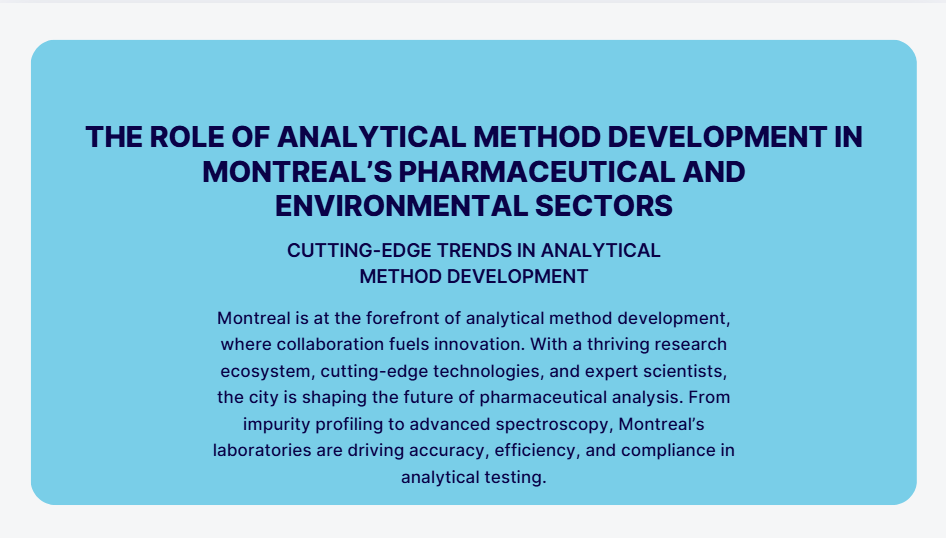
Analytical Method Development Montreal Canada has long been a hub for scientific advancements and pharmaceutical research . The city’s thriving research ecosystem is a testament to its strong academic institutions, cutting-edge laboratories, and dynamic collaborations between industry and academia. Analytical method development, a critical component in pharmaceutical and chemical industries, has benefited immensely from Montreal’s research community. This blog explores the impact of collaboration and innovation on analytical method development in Montreal and highlights key institutions, emerging trends, and technological advancements shaping the field.
Importance of Analytical Method Development
Analytical Method Development Montreal Canada is crucial for ensuring the safety, efficacy, and quality of pharmaceutical products. It involves the creation and validation of methods used for the identification, quantification, and characterization of compounds. As regulatory bodies like Health Canada and the FDA enforce stringent quality standards, the need for robust analytical methods has never been greater.
Montreal has positioned itself as a leader in this field, thanks to the convergence of leading research institutions, innovative startups, and well-established pharmaceutical companies. Through interdisciplinary collaboration and access to state-of-the-art technology, Montreal is driving significant advancements in analytical science.
Key Players in Montreal’s Research Ecosystem
1. Academic Institutions
- McGill University: Known for its world-class chemistry and pharmaceutical sciences programs, McGill is a powerhouse in analytical method research.
- Université de Montréal: With strong ties to the pharmaceutical industry, this institution fosters cutting-edge research in analytical techniques and regulatory science.
- Concordia University: Offers specialized programs in analytical chemistry, contributing to workforce development and innovation.
2. Research Institutes and Innovation Hubs
- National Research Council Canada (NRC) – Montreal Division: Conducts extensive research in analytical chemistry and method validation.
- Montreal Institute of Advanced Research (MIAR): A collaborative research hub working on next-generation analytical techniques.
- CQDM (Quebec Consortium for Drug Discovery): Supports public-private partnerships to drive analytical advancements.
3. Pharmaceutical and Biotechnology Companies
- Montreal is home to leading pharmaceutical companies like Pfizer Canada, Merck Canada, and Valeant Pharmaceuticals, which invest in analytical method development.
Emerging Trends in Analytical Method Development
1. High-Resolution Mass Spectrometry (HRMS)
HRMS is transforming the identification and quantification of complex molecules. Researchers in Montreal are leveraging this technology for impurity profiling and metabolomics studies.
2. Artificial Intelligence and Machine Learning
AI-driven analytical method development is gaining traction in Montreal’s research landscape. Machine learning algorithms are being used to optimize experimental design, enhance data analysis, and accelerate drug development.
3. Green Analytical Chemistry
Sustainability is a growing concern in analytical chemistry. Montreal-based researchers are pioneering green analytical methods that reduce solvent usage and energy consumption while maintaining precision and accuracy.
4. Microfluidics and Lab-on-a-Chip Technologies
Microfluidic devices are revolutionizing analytical testing by enabling rapid and cost-effective sample analysis. Research groups at McGill and Université de Montréal are at the forefront of developing these cutting-edge technologies.
5. Regulatory Compliance and Data Integrity
Ensuring compliance with evolving regulatory guidelines is a priority for Montreal’s research community. Advances in data integrity solutions and automated documentation processes are helping streamline regulatory submissions.
Collaboration Driving Innovation
Montreal’s research ecosystem thrives on collaboration. Universities, research institutes, and industry leaders frequently engage in joint ventures, knowledge-sharing initiatives, and funding partnerships. Government support through initiatives like the Canada Foundation for Innovation (CFI) and Mitacs research programs further strengthens collaborative efforts.
Future Prospects
The future of analytical method development in Montreal looks promising. With increasing investments in AI, green chemistry, and microfluidics, Montreal is poised to remain a global leader in analytical science. As the demand for precise and efficient analytical techniques grows, the city’s research community will continue to shape the next generation of scientific innovations.
Conclusion
Montreal’s collaborative research environment and commitment to innovation have positioned it as a global hub for analytical method development. By integrating cutting-edge technology, fostering interdisciplinary partnerships, and prioritizing sustainability, Montreal is shaping the future of analytical science. Companies and researchers looking to advance their analytical capabilities should consider leveraging Montreal’s dynamic research ecosystem.
REFERENCES
- Doloreux D, Turkina E. Intermediaries in regional innovation systems: An historical event-based analysis applied to AI industry in Montreal. Technology in Society. 2023 Feb 1;72:102192.
- Cambrosio A, Keating P, Mogoutov A. Mapping collaborative work and innovation in biomedicine: A computer-assisted analysis of antibody reagent workshops. Social studies of science. 2004 Jun;34(3):325-64.
- Chapman CA, Bicca-Marques JC, Calvignac-Spencer S, Fan P, Fashing PJ, Gogarten J, Guo S, Hemingway CA, Leendertz F, Li B, Matsuda I. Games academics play and their consequences: how authorship, h-index and journal impact factors are shaping the future of academia. Proceedings of the Royal Society B. 2019 Dec 4;286(1916):20192047.
- Heidingsfelder M, Kimpel K, Best K, Schraudner M. Shaping future—adapting design know-how to reorient innovation towards public preferences. Technological forecasting and social change. 2015 Dec 1;101:291-8.
LET’S CONNECT
ResolveMass Laboratories Inc. is at the forefront of analytical method development. Whether you need customized analytical solutions or regulatory-compliant methodologies, our experts are here to help. Contact us today to discuss your analytical testing needs and collaborate on innovative solutions.
Common Deficiencies in Peptide Sameness Study During ANDA Review
Introduction: Peptide Sameness Study Deficiencies are a leading cause of regulatory delays during ANDA review…
Peptide Sequencing, Peptide Mapping and NMR in Sameness Studies: Why Orthogonal Methods Matter
Introduction: Peptide Sequencing and Mapping for Sameness Study is the foundation for demonstrating structural identity…
Regulatory Requirements for Peptide Sameness Study (FDA & Health Canada)
Introduction: FDA Peptide Sameness Study Requirements define the scientific and regulatory framework needed to demonstrate…
Nitrosamine Testing in Controlled Substances and Highly Potent APIs (HPAPIs)
Introduction: Why Nitrosamine Testing Highly Potent APIs Requires Specialized Expertise Nitrosamine Testing Highly Potent APIs…
Case Study: Reformulation Strategy to Eliminate Nitrosamine Risk Without Changing Bioequivalence
Introduction: Applying a Nitrosamine Reformulation Strategy Without Compromising Bioequivalence A structured Nitrosamine Reformulation Strategy can…
Peptide Sameness Study vs Biosimilar Comparability: What’s the Difference?
Introduction: Peptide Sameness vs Biosimilar Comparability is one of the most misunderstood concepts in modern…
